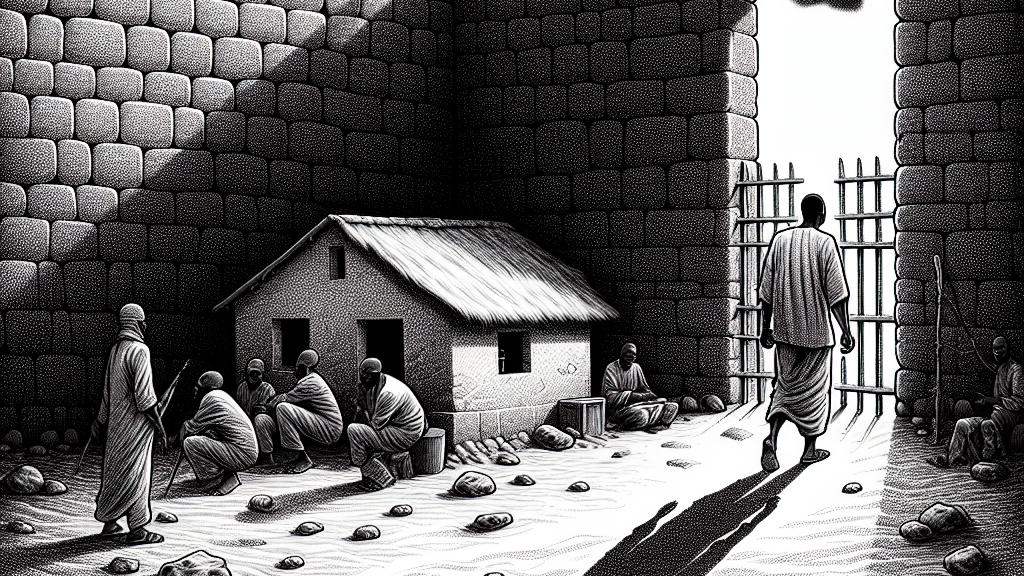The Struggles of a Nigerian Atheist After Prison Release
Overview
- Mubarak Bala, a brave Nigerian atheist, has recently regained his freedom after suffering a grueling four-year sentence for the crime of blasphemy.
- Now living in a safe house, he is tormented by the unrelenting threats to his life, a stark reminder of the danger that follows him.
- In Nigeria, where harsh religious laws govern society, those like Bala—who dare challenge faiths—represent both a glimmer of hope and a serious risk.

A Hard-Won Freedom
Emerging from over four long years in a harrowing prison environment, Mubarak Bala's release feels bittersweet. For him, the taste of freedom is exhilarating yet laced with anxiety. Upon stepping out from behind those cold prison walls, he knows the lurking shadows of danger have not disappeared. Living now in a safe house, his circumstances serve as a harsh reminder of Nigeria’s deeply entrenched religious beliefs and the chilling consequences they carry. Imagine a country where openly questioning religious ideals can lead to imprisonment—or worse. This context sheds light on the immense courage it takes for individuals like Bala to raise their voices, countering the potent force of fear that often silences dissent.
The Price of Activism
Mubarak's journey isn't just about survival; it's about the heavy toll that activism can exact. As a former president of the Humanist Association of Nigeria, he boldly challenged societal norms. His fateful social media post sparked outrage among religious extremists, leading to a legal onslaught that culminated in an astonishing blasphemy conviction. It's astonishing to think that in a modern world, simply expressing beliefs can lead to years in a prison cell, where perspectives are feared instead of respected. Bala's story not only puts a spotlight on the struggle for human rights in Nigeria, but it also reveals the broader implications for freedom of expression globally. His plight resonates with human rights advocates across the world who strive each day to uplift voices stifled by intolerance.
Rethinking Identity and Safety
Although Mubarak Bala has regained his freedom, he grapples daily with the uncertainty it brings. For him, the thrill of liberation is overshadowed by the constant weight of impending danger. Each moment spent in his new safe house underscores the reality that safety is an elusive concept for those who challenge predominant religious views. Bala often reflects on his time in prison, sharing with palpable fear how he lay awake at night, contemplating whether he would live to see another sunrise. His experiences highlight a broader societal issue, reminding us that the struggle of one is often a reflection of the struggles of many. As he moves forward, determined to reclaim his life, it becomes abundantly clear: the fight for religious tolerance and human dignity is far from over in Nigeria, and figures like Bala are at the forefront of this essential battle.

Loading...